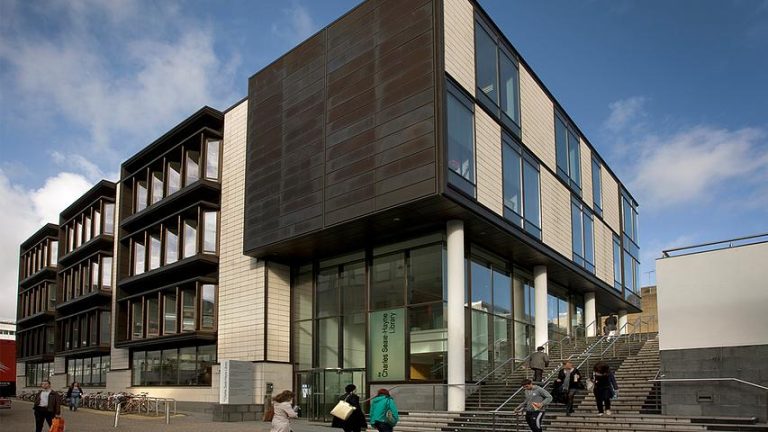For qualified Nigerians looking for better employment prospects overseas, moving to the UK via the skilled worker route is becoming a more and more popular choice. If a person satisfies certain eligibility requirements, such as getting a job offer from an authorized business, they are permitted to live and work in the UK under the skilled worker visa. This guide offers a comprehensive, Nigerian-specific overview that covers all the information you need to make this journey a success.
What Is the Skilled Worker Visa?
The Skilled Worker visa is an immigration route introduced by the UK government to attract foreign talent to fill gaps in the UK labor market. For Nigerians, this visa offers a chance to work legally in the UK, with a pathway to permanent residency after five years. The visa is tied to a specific job offer, meaning you must have employment arranged before applying.
Benefits of the Skilled Worker Visa
- Work Opportunities: Allows you to work in eligible roles.
- Family Inclusion: Your spouse and children can join you in the UK.
- Pathway to Settlement: Eligibility for indefinite leave to remain (ILR) after five years.
- Education and Healthcare: Access to the UK’s public services like schools and the National Health Service (NHS).
Eligibility Requirements for Nigerians
To qualify for the Skilled Worker visa as a Nigerian, you must meet the following criteria:
1. Job Offer from a UK Employer
- Your job must be with an approved UK sponsor licensed to offer Skilled Worker visas.
- The job must meet the skill and salary thresholds (discussed below).
2. Skill Level and Salary Threshold
- The job must typically require a skill level of RQF Level 3 (equivalent to A-levels in the UK).
- Salary must meet the minimum threshold: £26,200 annually (£10.75/hour) or £20,960 for jobs in shortage occupations.
3. English Language Proficiency
- Prove your ability to read, write, speak, and understand English.
- This can be done via: Passing an approved English language test, like IELTS or PTE Academic. Holding a degree taught in English.
4. Certificate of Sponsorship (CoS)
- A CoS is a reference number provided by your UK employer confirming your job details.
5. Occupation on the Shortage Occupation List
- Certain roles, such as healthcare workers and IT professionals, are in high demand and have reduced salary thresholds, making them easier for Nigerians to access.
Step-by-Step Process to Apply
1. Research Eligible Roles
Visit the UK Shortage Occupation List to identify jobs that are in demand and match your skills. Popular fields for Nigerians include healthcare, engineering, IT, and education.
2. Secure a Job Offer
- Update your CV and tailor it to UK standards.
- Apply for jobs on platforms such as:
- NHS Jobs (for healthcare professionals).
- LinkedIn.
- Indeed UK.
- Once hired, your employer will issue a Certificate of Sponsorship (CoS).
3. Prepare Your Documents
You’ll need:
- A valid Nigerian passport.
- Certificate of Sponsorship from your UK employer.
- Evidence of English proficiency (IELTS results or equivalent).
- Proof of meeting financial requirements: Bank statements showing at least £1,270 for maintenance (waived if your sponsor covers this).
- Tuberculosis (TB) test results from an approved Nigerian clinic.
4. Apply for the Visa Online
- Complete your application at Gov.uk.
- Pay the visa application fee, which varies:
- Up to 3 years: £625.
- More than 3 years: £1,235.
- Shortage occupation roles: Lower fees (£479 or £943).
5. Pay the Immigration Health Surcharge (IHS)
- This is a mandatory payment for access to the NHS.
- Costs £624 per year of your visa duration.
6. Attend the Biometric Appointment
- Book and attend a biometric appointment at a UK visa application center in Nigeria.
- Centers are located in Lagos, Abuja, and Port Harcourt.
7. Await a Decision
- Standard processing time is three weeks.
After Arriving in the UK
- Collect Your Biometric Residence Permit (BRP): You must collect your BRP within 10 days of arriving in the UK.
- Start Your Job: Begin working with your sponsoring employer under the conditions of your visa.
- Access Public Services: Register with the NHS for healthcare and enroll your children in schools if relocating with family.
Costs Involved
1. Visa Application Fees: Standard visa fees range from £479 to £1,235 depending on the duration and job type.
2. Immigration Health Surcharge (IHS): £624 per year of visa duration.
3. Tuberculosis Test Fee: Costs about $150 at approved clinics in Nigeria.
4. English Language Test: IELTS costs approximately ₦83,000 (varies by location).
5. Travel and Relocation Costs: Flight tickets from Nigeria to the UK typically cost ₦350,000-₦700,000 depending on the airline and season. Budget for initial accommodation, usually around £500-£1,000 per month.
Challenges Nigerians Might Face
- Finding a Sponsor: Securing a job offer with sponsorship can be competitive.
- High Initial Costs: The visa process, tests, and relocation require significant financial preparation.
- Cultural Adjustment: Adapting to life in the UK, including weather, work culture, and accents.
Tips for Success
- Tailor Your CV: Highlight skills and experience that align with UK job requirements.
- Leverage Networks: Use LinkedIn and Nigerian communities in the UK for job opportunities and advice.
- Focus on Shortage Occupations: Roles in healthcare, IT, and teaching are in high demand and offer lower thresholds.
- Prepare Financially: Save adequately for visa fees, relocation, and initial living expenses.
Long-Term Opportunities
1. Indefinite Leave to Remain (ILR): After five years on a Skilled Worker visa, you may apply for ILR, allowing you to live permanently in the UK.
2. Citizenship: After obtaining ILR, you may qualify for British citizenship, typically after one additional year.
Relocating to the UK as a skilled worker offers Nigerians an opportunity for career growth, better quality of life, and a pathway to permanent residency. While the process involves preparation and costs, with the right planning and persistence, you can successfully navigate this immigration route and begin a new chapter in the United Kingdom.








Leave a Comment